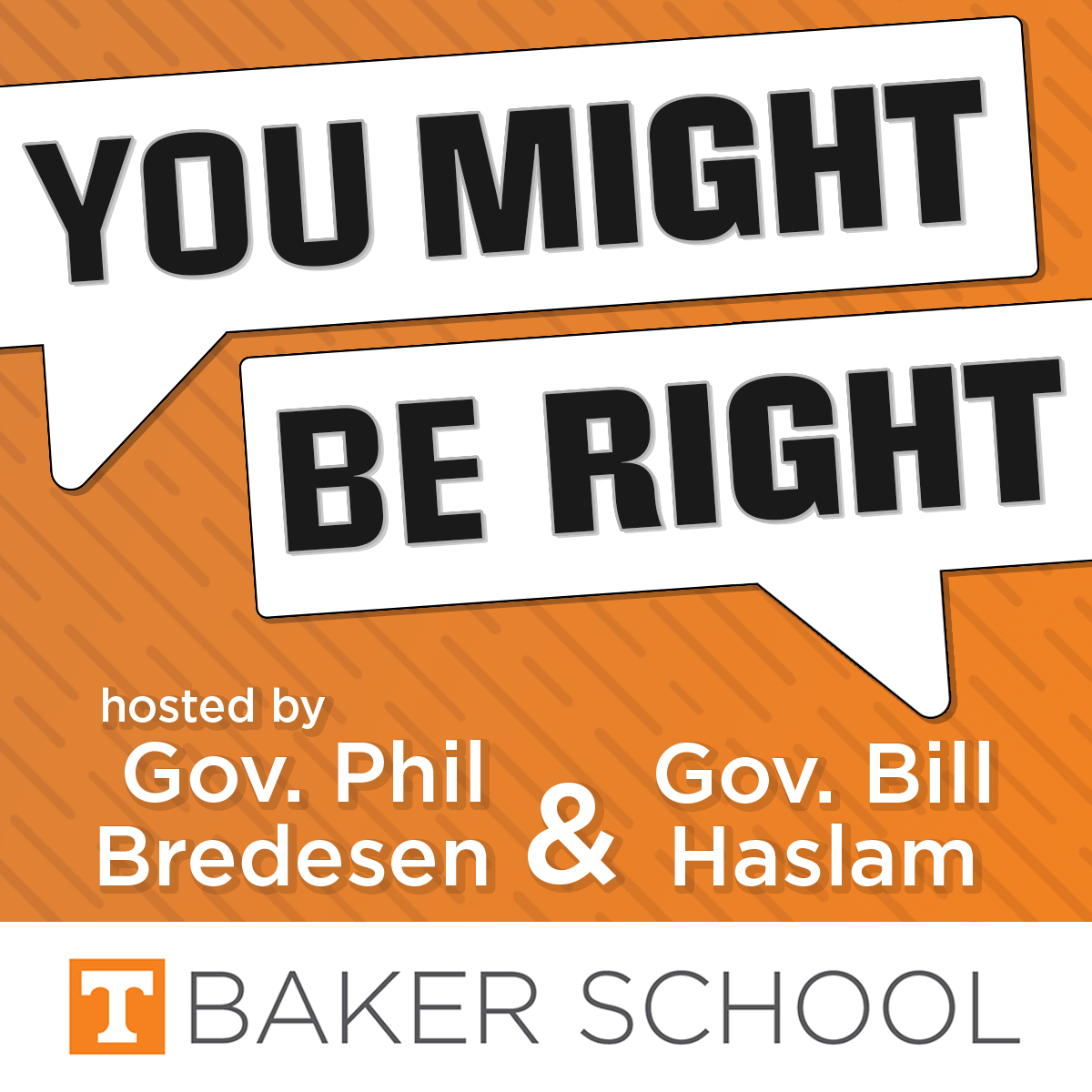Why is it so Controversial to Teach American History Today?
SEASON 2, EPISODE 1: Pulitzer Prize-winning author and historian Jon Meacham and Robert Woodson, civil rights activist and founder and president of the Woodson Center, join Governors Bredesen and Haslam to discuss the controversy over teaching American history
From American exceptionalism to race and inequality, the teaching of American history has become fraught with controversy. To kick off Season Two of You Might be Right, Jon Meacham, Pulitzer Prize-winning author and historian, and Robert Woodson, civil rights activist and founder and president of the Woodson Center, join Governors Bredesen and Haslam to discuss why we can’t seem to agree on a narrative of our country’s past – and where we might look to find common ground on our national story.
Subscribe and follow You Might be Right wherever you get your audio content – including Apple Podcasts, Spotify, and Stitcher – to never miss an episode, or sign up for our email list to receive new episodes straight to your inbox each week here.
“History’s not value-free because human beings aren’t value-free”
Meacham, a former journalist, opened the conversation by acknowledging that while the use of history as a political tool to divide or unify the country is not new, the controversy playing out in settings like school board meetings today “is a fairly recent phenomenon in terms of the recognizable manifestations.”
“This isn’t like teaching biology,” Meacham added. “There is a moral component here. History’s not value-free because human beings aren’t value-free.” Meacham and Governor Haslam recount teaching a class together and addressing questions about whether the Declaration of Independence was an Enlightenment document because it only represented the views of white men.
In discussing what he would want students to take away from an American history class today, Meacham summarized his own view, noting, “It is a remarkable thing that just enough of us have done the right thing at just the right time to continue an experiment that’s worth defending.”
“How many of us want to be defined by the worst we’ve ever done?”
Woodson, a civil rights leader, bestselling author, and social activist, shared his own view about what we owe our kids in terms of an understanding of American history. “How many of us want to be defined by the worst we’ve ever done?” he told Governors Bredesen and Haslam. “At a certain point, common sense has to come into the picture, and America is a country of redemption. If you’re going to teach history, talk about the good, the bad, and the ugly, but tell it all and tell it completely, and not just have it fit your own narrow ideological bias.”
Woodson cited his experience and work to empower disadvantaged communities throughout his conversation with the governors, emphasizing the importance of being solution-oriented and looking to the future.
Subscribe and follow You Might be Right wherever you get your audio content – including Apple Podcasts and Spotify – to never miss an episode, or sign up for our email list to receive new episodes straight to your inbox each week here.

Join the conversation on Twitter by following @UTBakerSchool, @PhilBredesen, and @BillHaslam.